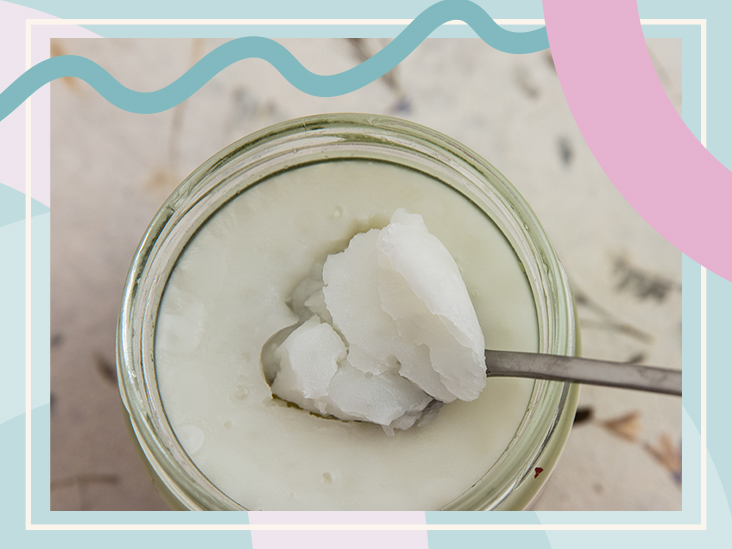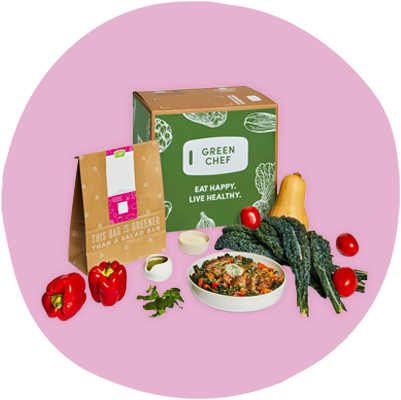| | | Coconut oil is a popular cooking oil made from coconuts. It's solid at room temperature and has a subtle coconutty taste. Personally, I love the hint of flavor that it brings to certain foods, especially pancakes! | | Coconut oil has grown in popularity in recent years and is often touted for having certain beneficial properties. However, it's also high in saturated fat, which has led to much debate on its healthfulness. Below, Kirsten Seele, a registered dietitian at Healthline, weighs in. | | | | | | | Eat up,
Ginger Wojcik
Newsletter Editor, Healthline |  | | Written by Ginger Wojcik
August 12, 2025 • 4.5 min read | | | | | |  | | | | Q: | Should I be concerned about the saturated fat in coconut oil? | | | A: | Coconut oil is one of the most common foods I'm asked about. It's likely the most controversial, too, since there are mixed results on its healthfulness. Whether we should add coconut oil to our diets or remove it entirely is inconclusive — and that's OK! This is science after all, and it is ever-evolving.
tl;dr There's probably room in your diet for some coconut oil; however, because it contains saturated fat, it's best consumed in moderation.
Saturated fat increases low-density lipoprotein cholesterol (aka "bad" cholesterol), which increases the risk of heart attacks and strokes. (Pro tip: Saturated fats are solid at room temperature — think butter, lard, and coconut oil.) Most saturated fat is found in animal products, but there are a few exceptions, including coconut oil and palm oil.
The American Heart Association (AHA) recommends consuming no more than 6% of daily calories from saturated fats, and the current Dietary Guidelines for Americans 2020–2025 recommends no more than 10%.
If you're following a 2000-calorie-per-day diet, 6 to 10% of it would equal 120 to 200 calories. (Fun fact: All fats contain 9 calories in every 1 gram [g].) So, 120 to 200 calories divided by 9 g per calorie equals 13 to 22 g of saturated fats daily. For someone with heart disease or at risk for heart disease, I would recommend aiming for the lower end of the range.
Like any "budget," you can choose what you want to spend your daily saturated fat allotment on, including coconut oil. That's what moderation is all about! But it's important to note that, generally, one tablespoon of coconut oil contains almost 12 g of saturated fats, which could use up the majority of your budget for the day.
One thing I often hear is, "But wait, isn't coconut oil better for us than butter, since it's not an animal product?!" In theory, it makes sense that coconut oil could be less harmful, given that it does not contain cholesterol and is made up of medium-chain triglycerides rather than long-chain triglycerides, like animal products. Your body processes these triglycerides differently, and some studies suggest that medium-chain triglycerides may help you manage metabolic conditions such as diabetes. However, the evidence isn't clear on this point.
Coconut oil is also often touted for its health benefits and antimicrobial properties. It's said to help with weight loss, oral health, skin health, and more. However, studies show inconsistent results.
If you're looking for the most nutrient-rich coconut oil, opt for extra virgin options that have been minimally processed. But keep in mind that coconut oil can only contribute to a small amount of nutrients, given the amount we consume at one time.
Moderation is often key for optimal health in the long term, and the answer for coconut oil right now is no different. If you want to add coconut oil to your diet for the potential benefits mentioned above, I want you to feel empowered to do so, with moderation in mind! | | | | | Kirsten Seele, Registered Dietitian | | | Want to learn more about food, diets, cooking, or some other nutrition subject? Let us know at nutritionedition@healthline.com and we'll look into it for you! (Heads up, we may use your response in an upcoming newsletter.) | | | Sponsored by | |  | | | | | Go green | | | | |  | | Green Chef | Tired of grocery shopping and meal prep? Green Chef delivers pre-portioned healthy ingredients, 100% organic produce, and the highest quality proteins straight to your door. There are options that fit every lifestyle, including plant-based, Mediterranean, gluten-free, dairy-free, and keto.
Green Chef never lets you fall into a dinner rut. Its 40+ chef-crafted weekly recipes feature customizable options and seasonal ingredients. Get 50% off your first box and 20% off for 2 months with code HLM50FB! | | | | Every product we recommend has gone through either Healthline's or Optum Now's vetting processes. If you buy through links on this page, we may receive a small commission or other tangible benefit. Healthline has sole editorial control over this newsletter. Potential uses for the products listed here are not health claims made by the manufacturers. Healthline and Optum Now are owned by RVO Health. | | | | | | | | | | | | | | | | | What we're digesting | | 🥗 12 low sodium recipe ideas. Eating a low sodium diet can be easy and delicious when you know what to make. | | 😫 What to do when your IBS pain is unbearable. Here's some guidance for knowing when it's time to talk with a doctor. | | 🧻 Are your multiple sclerosis symptoms causing constipation? Let's look at some remedies that might help. | | ❌ 5 foods to limit with kidney disease and diabetes. These conditions can affect how your body processes certain nutrients. | | | | | How did you feel about this newsletter? | | | | | Email nutritionedition@healthline.com with comments related to this newsletter or topics you'd like to see in future editions. The newsletter editors read every message that lands in our inbox — yes, really! We look forward to hearing from you. | | | | Until next time, |  | Take care of yourself, and we'll see
you again soon! | | | | |  | | This edition was powered by | | coconuts!️ | | | | |



Nema komentara:
Objavi komentar